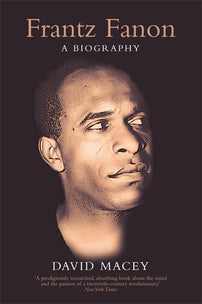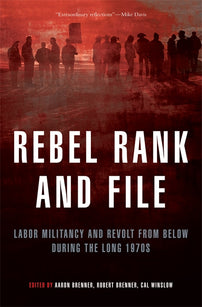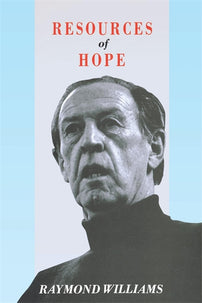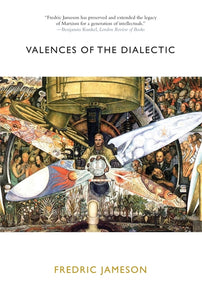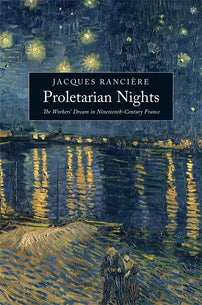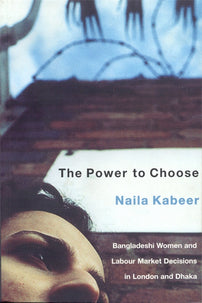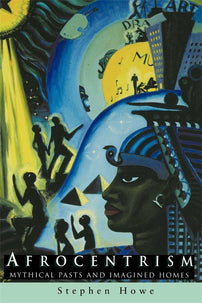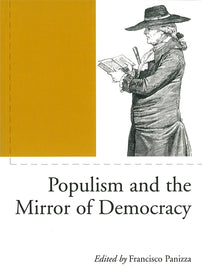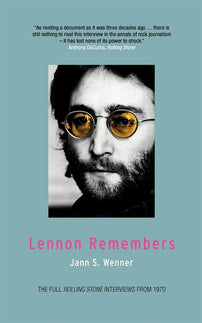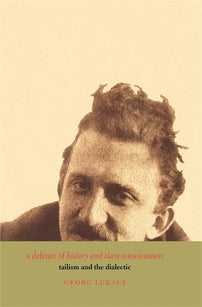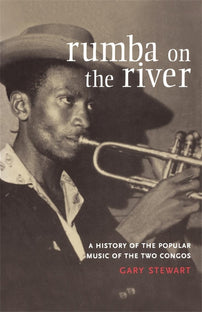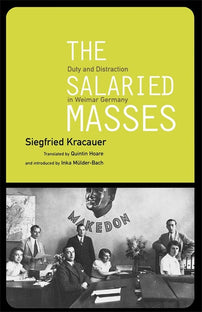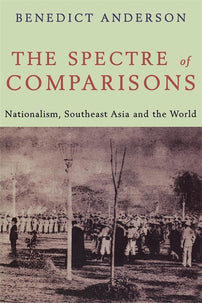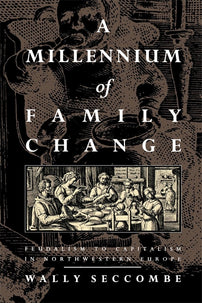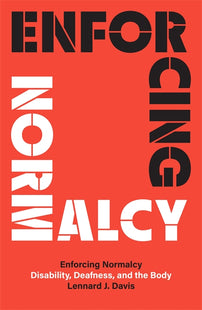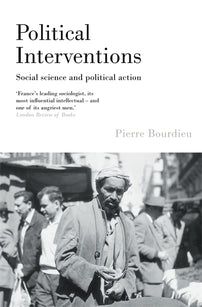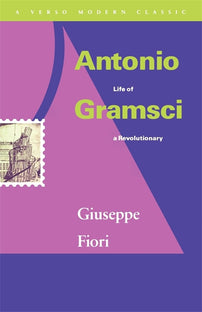Verso Classics - half price sale!
50% off selected classic texts, including books on Frantz Fanon, Carl Schmitt, John Lennon, changing family structures, the Afrocentric movement, science fiction, English Marxism and the history of US class struggle.

A special sale on some of our classic backlist titles.
Dive into David Macey’s masterful biography of Frantz Fanon, the cult classic The Society of the Spectacle by Guy Debord, a history of US class struggle in Rebel Rank and File, a collection of essays exploring new ways of thinking about the science fiction genre edited by Annette Kuhn, a study of the changing structure of families by Wally Seccombe, an exploration of the thought of Carl Schmitt by Chantal Mouffe, and many more!
50% off all of the classic books on the reading list below, on sale until Sunday, November 11 at 11:59PM EST.
[book-strip index="1" style="buy"]David Macey’s eloquent life of Fanon provides a comprehensive account of a complex individual’s personal, intellectual and political development. It is also a richly detailed depiction of postwar French culture. Fanon is revealed as a flawed and passionate humanist deeply committed to eradicating colonialism. Now updated with new historical material, Frantz Fanon remains the definitive biography of a truly revolutionary thinker.
[book-strip index="2" style="buy"]First published in 1967, Guy Debord’s stinging revolutionary critique of contemporary society, The Society of the Spectacle has since acquired a cult status. Credited by many as being the inspiration for the ideas generated by the events of May 1968 in France, Debord’s pitiless attack on commodity fetishism and its incrustation in the practices of everyday life continues to burn brightly in today's age of satellite television and the soundbite.
[book-strip index="3" style="buy"]In this volume, the differing voices and views of leading Chinese thinkers can for the first time be heard in English translation, debating the future of their society and its place in the world. One China, Many Paths offers a vibrant panorama of the contemporary intellectual scene in the People’s Republic. Its contributors include economists and historians, philosophers and sociologists, writers and literary critics, across the generations.
[book-strip index="4" style="buy"]Often considered irredeemably conservative, the US working class actually has a rich history of revolt. Rebel Rank and File uncovers the hidden story of insurgency from below against employers and union bureaucrats in the late 1960s and 1970s. It was a remarkable era in the history of US class struggle, one rich in lessons for today's labor movement.
[book-strip index="5" style="buy"]Raymond Williams possessed unique authority as Britain’s foremost cultural theorist and public intellectual. Informed by an unparalleled range of reference and the resources of deep personal experience, his life’s work represents a patient, exemplary commitment to the building of a socialist future. This valuable collection confirms Raymond Williams as a thinker of rare versatility and one of the outstanding intellectuals of our century.
[book-strip index="6" style="buy"]After half a century exploring dialectical thought, renowned cultural critic Fredric Jameson presents a comprehensive study of a misunderstood yet vital strain in Western philosophy. The dialectic, the concept of the evolution of an idea through conflicts arising from its inherent contradictions, transformed two centuries of Western philosophy. To Hegel, who dominated nineteenth-century thought, it was a metaphysical system. In the works of Marx, the dialectic became a tool for materialist historical analysis.
[book-strip index="7" style="buy"]Proletarian Nights, previously published in English as Nights of Labor and one of Rancière’s most important works, dramatically reinterprets the Revolution of 1830, contending that workers were not rebelling against specific hardships and conditions but against the unyielding predetermination of their lives. Through a study of worker-run newspapers, letters, journals, and worker-poetry, Rancière reveals the contradictory and conflicting stories that challenge the coherence of these statements celebrating labor.
[book-strip index="8" style="buy"]Isaac Deutscher is widely recognized as one of the foremost political biographers of the twentieth century, and his full-scale studies of Trotsky and Stalin, translated into many world languages, have played a major role in elucidating the character and fate of the Russian Revolution. This volume is designed both as a lasting collection of some of Deutscher’s best-known and most powerful texts, and as an introduction for readers approaching his work for the first time.
[book-strip index="9" style="buy"]Ibn Khaldun, the most celebrated thinker of the Muslim Middle Ages, is the subject of this intriguing study. Lacoste opens with a general description of the Maghreb in the later Middle Ages, focusing primarily on mercantile trade, especially in gold, and the social and economic structures of tribal life. He unravels Khaldun’s fascinating biography—born of an aristocratic family in Tunis in 1332, he had an extraordinary diplomatic and military career in the turbulent wars and politics of Western Islam in the fourteenth century; withdrew to a desert retreat in 1375, and finally emigrated to Egypt.
[book-strip index="10" style="buy"]Late Capitalism is the first major synthesis to have been produced by the contemporary revival of Marxist economics. It represents, in fact, the only systematic attempt so far ever made to combine the general theory of the “laws of motion” of the capitalist mode of production developed by Marx, with the concrete history of capitalism in the twentieth century.
[book-strip index="11" style="buy"]In this path-breaking study, social economist Naila Kabeer examines the lives of Bangladeshi garment workers in Bangladesh and Britain to shed light on the question of what constitutes “fair” competition in international trade.
[book-strip index="12" style="buy"]Foregrounding the body, this remarkable collective work explores the sexualization of women’s bodies, charting the complex interplay of social, political and cultural forces which produce a normative “femininity.”
[book-strip index="13" style="buy"]In this provocative study, Stephen Howe traces the sources and ancestries of the Afrocentric movement, and closely analyses the writings of its leading proponents. Hard-hitting yet subtle and scholarly in its appraisal of Afrocentric ideas, and based on wide-ranging research in the histories both of Afro-America and of Africa itself, Afrocentrism not only demolishes the mythical “history” taught by black ultra-nationalists but suggests paths towards a true historical consciousness of Africa and its diaspora.
[book-strip index="14" style="buy"]Science fiction, more than any other film genre, allows cinema to exhibit its own distinctive matters of expression. Whether these be the state-of-the-art special effects technologies of 2001: A Space Odyssey, or the symbolic imagery of ruined cityscapes in Blade Runner, they allow the spectator to experience the totality of the audiovisual thrill. While this remains in many ways the core defining feature of the genre, recent trends in the study of science fiction cinema have seen a shift of focus away from the specifically cinematic towards the more broadly cultural.
[book-strip index="15" style="buy"]This book which combines the methods and results of both Freud and Marx is by one of the leaders of the West German student left during its most militant phase in the late 1960s. For reasons the author makes clear, the anti-authoritarian movement took more thoroughgoing and trenchant forms in West Germany than anywhere else. A new sexual morality was not only preached but practised.
[book-strip index="16" style="buy"]Populism raises awkward questions about modern forms of democracy. It often represents the ugly face of the people. It is neither the highest form of democracy nor its enemy. It is, rather, a mirror in which democracy may contemplate itself, warts and all, in a discovery of itself and what it lacks. This definitive collection, edited by one of the worlds pre-eminent authorities on populism, Francisco Panizza, combines theoretical essays with a number of specially commissioned case studies on populist politics.
[book-strip index="17" style="buy"]Alfred Russel Wallace’s reputation has been based on the fact that, at age thirty-five and stricken with malaria in the Moluccan Islands, he stumbled independently upon on the theory of natural selection. Andrew Berry’s anthology rescue’s Wallace’s legacy, showing Wallace to be far more than just the co-discoverer of natural selection. Wallace was a brilliant and wide-ranging scientist, a passionate social reformer and a gifted writer.
[book-strip index="18" style="buy"]Initially published on the twentieth anniversary of his death, this candid book reveals new information on the breakup of the Beatles, fellow musicians such as Bob Dylan and the Rolling Stones, Lennon's attitudes towards revolution and drugs, and his relationship with Yoko Ono. Featuring new introductions by Ono and Wenner, and containing substantial material never before seen in print, Lennon Remembers presents a compelling portrait of a complex musical genius at the height of his career.
[book-strip index="19" style="buy"]In the mid 1920s Lukács wrote a sustained and passionate response to Stalin’s onslaught on his earlier seminal work History and Class Consciousness. Unpublished at the time, Lukács himself thought that the text had been destroyed. However, a group of researchers recently found the manuscript gathering dust in the newly opened archives of the CPSU in Moscow. Now for the first time, this fascinating, polemical and intense text is available in English. It is a crucial part of a hidden intellectual history and will transform interpretations of Lukács’s oeuvre.
[book-strip index="20" style="buy"]Rumba on the River presents a snapshot of an era when the currents of tradition and modernization collided along the banks of the Congo. It is the story of twin capitals engulfed in political struggle and the vibrant new music that flowered amidst the ferment.
[book-strip index="21" style="buy"]Dearest Pet uncovers and explores those traces, illuminating the ambivalence of human attitudes to cross-species sexuality. Its author, the biologist and broadcaster Midas Dekkers, has analysed bestiality in all its aspects—physical, psychological and legal—and examined its representations in religion and mythology, art and literature, pornography and advertising.
[book-strip index="22" style="buy"]Carl Schmitt’s thought serves as a warning against the dangers of complacency entailed by triumphant liberalism. His conception of politics is a sharp challenge to those who believe that the blurring of frontiers between the left and right and the increasing mobilization of political discourse constitute great advances for democracy. Schmitt reminds us forcefully that the essence of politics is a struggle and that the distinction between friend and enemy cannot be abolished.
[book-strip index="23" style="buy"]First published in 1930, Siegfried Kracauer’s work was greeted with great acclaim and soon attained the status of a classic. The object of his inquiry was the new class of salaried employees who populated the cities of Weimar Germany.
[book-strip index="24" style="buy"]While The Spectre of Comparisons is an indispensable resource for those interested in Southeast Asia, Anderson also takes up the large issues of the universal grammars of nationalism and ethnicity, the peculiarity of nationalist imagery as replicas without originals, and the mutations of nationalism in an age of mass global migrations and instant electronic communications.
[book-strip index="25" style="buy"]How do changes in family form relate to changes in society as a whole? In a work which combines theoretical rigour with historical scope, Wally Seccombe provides a powerful study of the changing structure of families from the Middle Ages to the beginning of the Industrial Revolution.
[book-strip index="26" style="buy"]In this highly original study of the cultural assumptions governing our conception of people with disabilities, Lennard J. Davis argues forcefully against “ableist” discourse and for a complete recasting of the category of disability itself.
[book-strip index="27" style="buy"]Pierre Bourdieu, one of the most influential critical social theorists of the second half of the twentieth century, once described sociology as "a combat sport." This comprehensive collection of his writings on politics and social science, from early 1960s articles on the Algerian War of Independence to the last text he published before his death, proves that this vision was enduring throughout his life—as well as a serious scholar Bourdieu was always an outspoken public intellectual.
[book-strip index="28" style="buy"]The characteristic form taken by English Marxism since the war has been the study of history. No writer exemplifies its achievements better than Edward Thompson, whose Making of the English Working Class is probably the most influential single work of historical scholarship by a socialist today. An editor of The New Reasoner in 1957–59, a founder of the New Left in 1960, now an eloquent champion of civil rights, Thompson has most recently aroused widespread interest with the appearance of his Poverty of Theory, which combines philosophical and political polemic with Louis Althusser, and powerful advocacy of the historian’s craft. Arguments Within English Marxism is an assessment of its central theses that relates them to Thompson’s major historical writings themselves.
[book-strip index="29" style="buy"]Fiori’s biography enlarges upon the facts of Gramsci’s life through personal accounts, and through Gramsci’s own writings to relatives and friends. In relating Gramsci’s growth as a political leader and theorist to his private experience, it offers acute insights into his involvement in the factory councils movement. It examines his relationship with political opponents, including Mussolini, and with his comrades within the Communist Party before and during Gramsci’s imprisonment.
